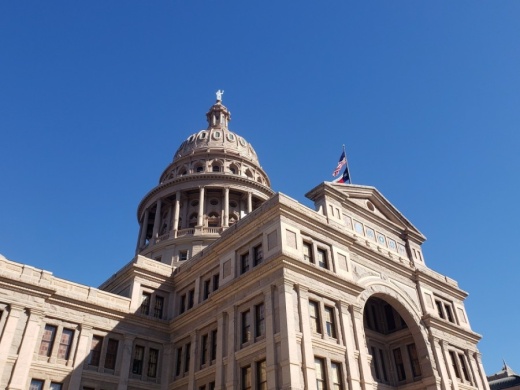It has been exactly one week since Austin Water lifted its boil water notice for all customers, marking the end of a crisis that included days of power and water outages. But even though residents were no longer being asked to reduce their electricity usage or boil their water after Feb. 23, the effects of the disaster did not just disappear right away.
The city of Austin held meal distribution events throughout the week for those in need at Millennium Youth Entertainment Complex in East Austin; the city and Travis County also set up various sites to distribute water and Austin ISD expanded its meal distribution efforts—all with the help of volunteers and local businesses. And those were just the official efforts. We know neighbors across the city were stepping up for those who missed shifts at work or had to pay to repair damage from a busted pipe.
It's hard to quantify exactly the long-lasting effects the storm will have on our community, but officials have started to ask questions. At a board meeting of the Electricity Reliability Council of Texas Wednesday, CEO Bill Magness said Texas was less than five minutes from a complete statewide blackout that would or longer to fix. Prior to that meeting, five ERCOT board members announced their intention to resign.
Then on Thursday, lawmakers had their turn to probe energy executives and start the process of finding out what went wrong. At those hearings, Sen. Brandon Creighton, R-Conroe described the disaster as 'the largest trainwreck in the history of deregulated electricity."
So far, lawmakers have been discussing better ways to enforce winterization and have ERCOT communicate better with the public. In addition, a group of members in the Texas House of Representatives including Rep. Donna Howard, D-Austin, has publicly asked the chair of the Public Utility Commission of Texas, which oversees ERCOT, to resign.
This is just the start of the conversation. There will be more hearings, which will lead to bills filed, discussions on the House and Senate floor, then ultimately permanent policy changes if lawmakers follow through with their promises. After one of the worst environmental disasters our state has ever experienced, residents are searching for answers and for accountability.
—Jack Flagler. Editor, Central Austin and Southwest Austin/Dripping Springs editions.
Other news to know this week:
-Travis, Caldwell, Hays and Bastrop counties administered the COVID-19 vaccine to 3,000 individuals at the Circuit for Americas on Saturday. Travis County judge said earlier this week he hopes to eventually see 50,000 doses administered at sites such as these each week. The arrival of a new vaccine on the market may help those efforts to add supply. On Friday, Johnson & Johnson's single-shot vaccine was approved for an Emergency Use Authorization by the U.S. Food & Drug Administration.
-A $674 million highway project is set to begin in Southwest Austin this summer. It will extend parts of Hwy. 290 to 12 lanes around the Y at Oak Hill and build 25-foot flyovers at the intersection with Hwy. 71. The Texas Department of Transportation said the traffic relief is long overdue for an area that has been a traffic choke point for decades. Opponents, including environmental groups and local politicians, say the project is overbuilt, wrong for the neighborhood and environmentally disruptive. And business owners are cautious—hoping the roadwork can be a long-term win but wary of the disruption scheduled to last five years.
-La Barbecue is heading to a new home. It will move from the Quickie Pickie to a new spot on East Cesar Chavez Street, formerly the home of Mongers Market + Kitchen. Owner LeAnn Mueller said the new joint is expected to open in May, and she plans to serve beer and wine alongside La Barbecue's brisket, pork ribs, sausage, turkey and pulled pork.





